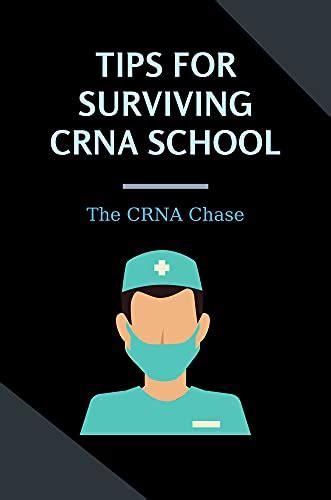Surviving CRNA School: A Step-by-Step Guide
Becoming a Certified Registered Nurse Anesthetist (CRNA) is a challenging but incredibly rewarding journey. The rigorous CRNA program demands dedication, resilience, and a strategic approach to learning. This comprehensive guide offers a step-by-step roadmap to help you not just survive, but thrive, throughout your CRNA education.
Understanding the CRNA School Landscape
Before diving into survival strategies, it's crucial to grasp the unique demands of CRNA school. Unlike other nursing specialties, the CRNA curriculum is intensely demanding, encompassing advanced physiology, pharmacology, anatomy, and sophisticated anesthetic techniques. Expect long hours of study, demanding clinical rotations, and a constant need to synthesize complex information.
What makes CRNA school so challenging?
- High volume of information: The sheer amount of material covered is overwhelming. You'll need to master complex concepts quickly and efficiently.
- Intense clinical rotations: You'll be working long shifts in diverse clinical settings, managing patients under direct supervision.
- Competitive environment: The program attracts high-achieving individuals, creating a naturally competitive atmosphere.
- High stakes testing: Success hinges on consistently performing well on exams, which often require deep understanding and application of knowledge.
Step-by-Step Strategies for Success
1. Master Time Management: This is arguably the most critical skill for surviving CRNA school. Create a realistic study schedule that balances coursework, clinical rotations, and personal life. Utilize time-blocking techniques, prioritize tasks, and eliminate time-wasting activities.
2. Develop Effective Study Habits: Find study methods that work best for you. Active recall, spaced repetition, and practice questions are highly effective. Study in short, focused bursts rather than long, unproductive stretches. Form study groups to collaborate and learn from each other's strengths.
3. Embrace Active Learning: Don't just passively read textbooks; engage with the material actively. Use flashcards, create mind maps, teach concepts to others, and participate fully in class discussions. The more actively you engage with the information, the better you'll retain it.
4. Seek Mentorship and Support: Connect with experienced CRNAs, professors, and fellow students. A strong support network can provide guidance, encouragement, and a sense of community during challenging times. Don't hesitate to ask for help when needed – it's a sign of strength, not weakness.
5. Prioritize Self-Care: Maintaining physical and mental well-being is crucial. Get enough sleep, eat nutritious food, exercise regularly, and find healthy ways to manage stress. Neglecting self-care will inevitably impact your academic performance.
6. Stay Organized: Use a planner, calendar, or digital organizational tools to keep track of deadlines, assignments, and clinical schedules. A well-organized approach will minimize stress and maximize efficiency.
Frequently Asked Questions (FAQs)
How many hours a week should I expect to study in CRNA school?
The average student spends 50-70 hours per week studying, attending classes, and completing clinical rotations. This includes time spent reading, reviewing, practicing, and preparing for exams.
What are the most challenging aspects of CRNA school?
Many students find the sheer volume of information, the intensity of clinical rotations, and the pressure of high-stakes exams to be the most demanding aspects. The need to seamlessly integrate complex theoretical knowledge with practical clinical application also presents a significant hurdle.
How can I balance my personal life with the demands of CRNA school?
Effective time management is key. Prioritize tasks, schedule dedicated time for personal activities, and learn to say "no" when necessary. Remember that maintaining a healthy work-life balance is essential for both your academic success and your well-being.
What resources are available to help me succeed in CRNA school?
Many resources are available, including tutoring services, study groups, mentorship programs, and academic advising. Your school will likely provide access to these resources; don't hesitate to take advantage of them.
Conclusion
Surviving and thriving in CRNA school requires dedication, effective strategies, and a commitment to self-care. By implementing these steps and building a strong support system, you can navigate the challenges and emerge as a confident and competent CRNA. Remember, this journey is demanding, but the rewards of becoming a CRNA are immeasurable. With careful planning, perseverance, and a commitment to excellence, you can achieve your goals.

